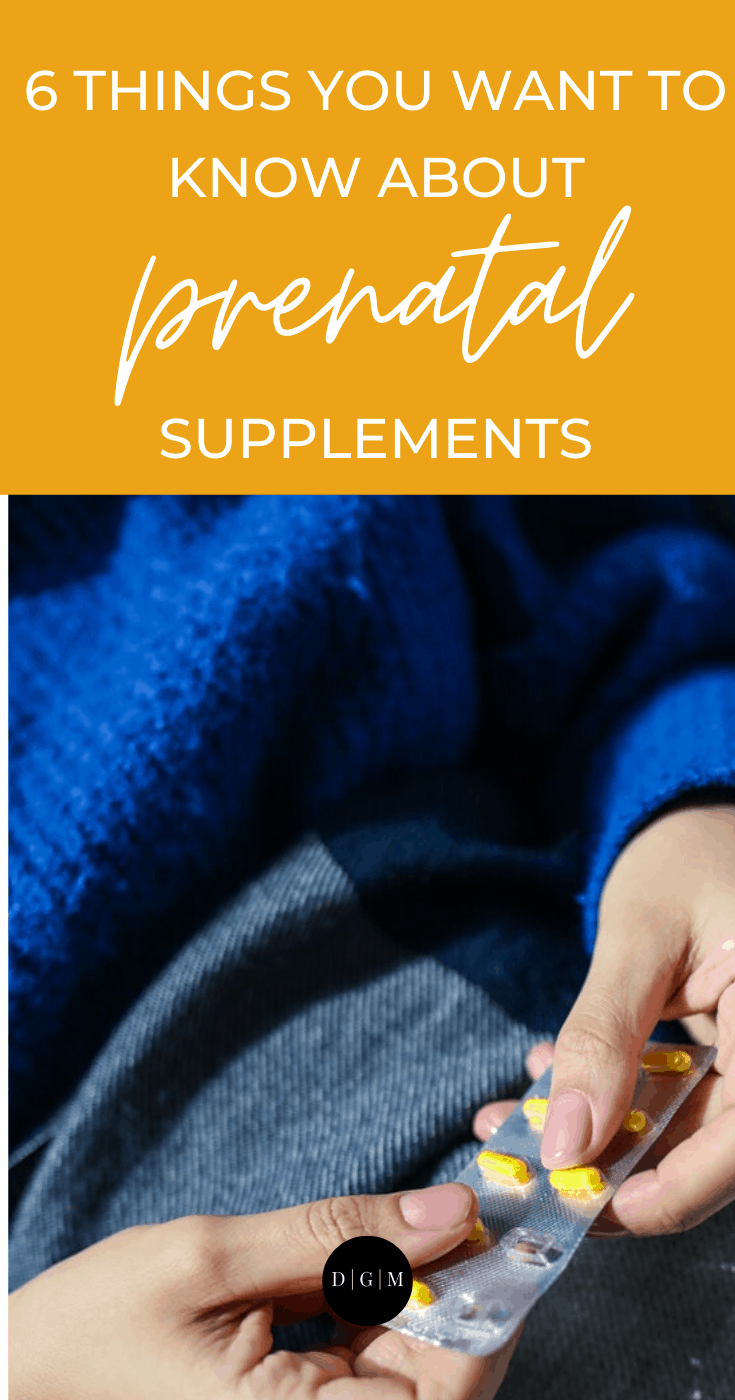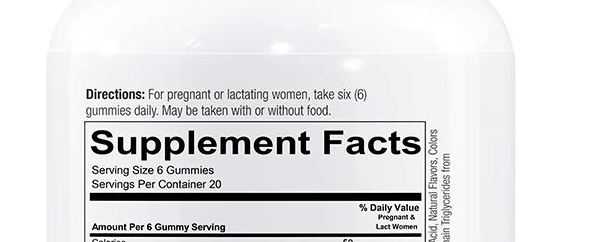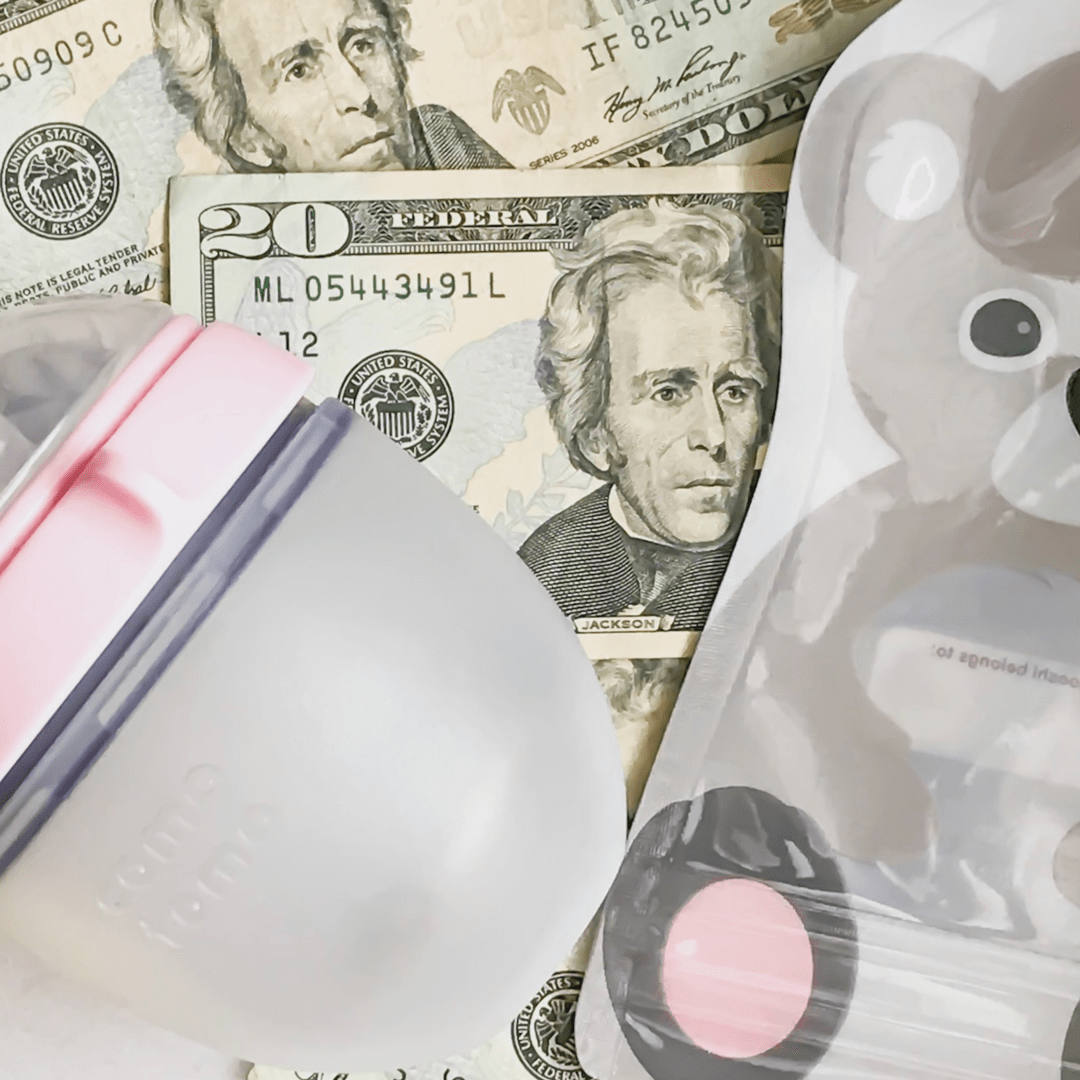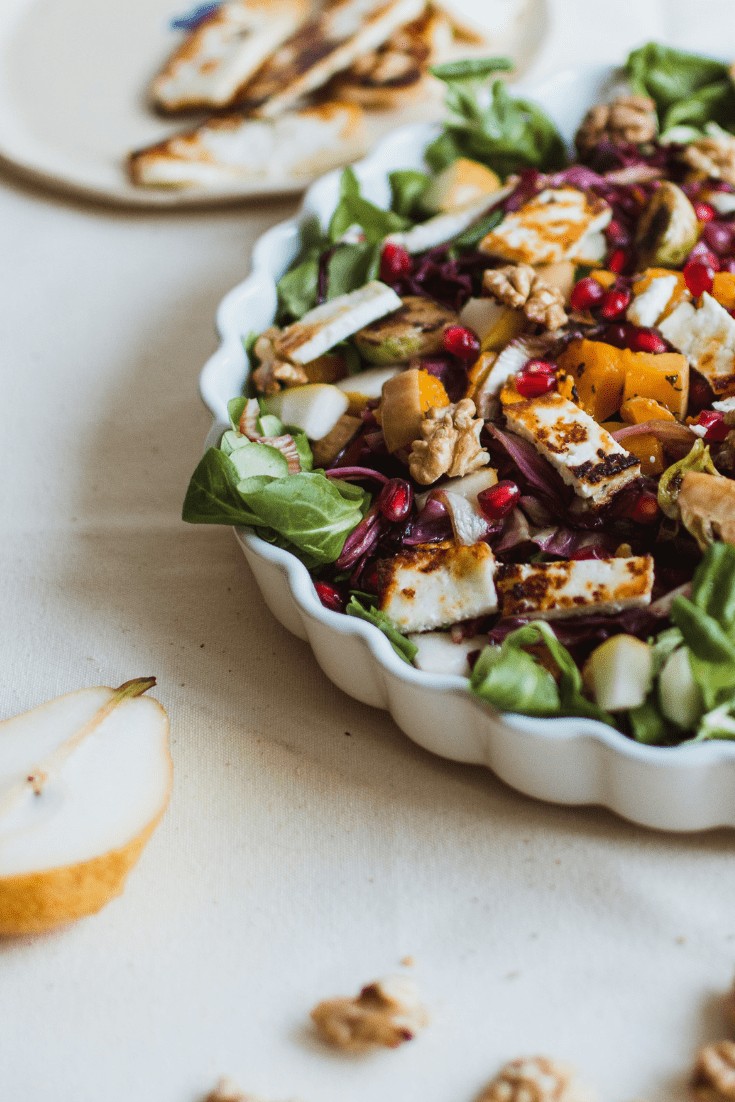Imagine a girl standing in the supplement aisle utterly confused about which of the dozens of prenatal vitamins would be best for her and her baby. Not so long ago that confused girl was me.

Photo by Polina Tankilevitch via Pexels – edited by DGM
I’ve always adhered to the food first philosophy when it came to vitamins and supplements; however, there is no denying that prenatal vitamins can help us fill the nutritional gaps in our diet.
The question isn’t should we take prenatal supplements, it’s which prenatal vitamins and supplements should we take?
If you find yourself standing in the supplement aisle at your local pharmacy, this simple question can be difficult to answer because of the abundance of options.
The thing is…
We all have different needs, which makes it nearly impossible to suggest that one brand of prenatal supplements would be best for every woman, so…I’m not going to do that.
Instead, I’m going to share some information that I’ve learned that can help you make your own decision.
Disclaimer: I am not a medical professional and I always recommend that you talk with a qualified and trusted health care provider, before taking any medications or supplements – especially if you are pregnant.
1. Vitamins are not FDA regulated.
If you value the oversight of the U.S. Food and Drug Administration (FDA) for helping determine the safety and efficacy of food, drugs, device, and other products, please be aware that dietary supplements are not regulated.
“FDA is not authorized to review dietary supplement products for safety and effectiveness before they are marketed.” – U.S. Food and Drug Adminstration
Therefore, the prenatal vitamins and other supplements we choose to consume come with risks. For this reason, it is necessary to do research to determine which brands can be trusted to deliver quality products.
Some of the advice that the FDA offers for choosing vitamins include:
- Checking with your medical provider.
- Don’t just rely on seller information (solely). Do some research.
- Be wary of unbelievable claims.
No one knows for sure how well supplements are manufactured; however, I tend to look at reviews, consult with medical professionals, and stick to brands that are recognizable in the industry. This doesn’t make them better but a track record means something to me.
2. Folic Acid isn’t the same as Folate
Folate is the natural form of the B9 vitamin that is found in foods like spinach, greens, lentils, beans, broccoli, and avocado (1). It’s essential for helping the body make red blood cells and plays a significant role in DNA formation.
This vitamin is recommended to us during pregnancy because research suggests that a lack of this micronutrient can lead to neural tube defects and other serious complications like anemia, preeclampsia, and cardiovascular disease (2).
Although folate is the naturally occurring form of B9, many prenatal vitamins contain folic acid, a synthetic form of the vitamin.
Here are some things to note about choosing a vitamin with folic acid instead of folate:
- 40%-60% of the population have a genetic variant that prevents the conversion of folic acid to a form that our bodies can use called L-Methyfolate also known as 5-MTHF (3).
- The inability to convert folic acid to its active form can result in a dangerous build-up of unmetabolized folic acid in the blood (4).
If you know you have this gene variant or want to err on the side of caution, consider choosing a prenatal vitamin with the bioactive forms of folate.
How to identify if your prenatal vitamin has folate?
Check the label for:
- “L-5- MTHF”, “5-MTHF”, “L-methylfolate”
If the MTHFR gene isn’t a concern for you, there are several prenatal vitamins that have folic acid. Again just have a discussion with your doctor if you need assistance choosing.
FYI:
Many countries including the USA require that manufacturers of grains like bread, cereals, flours, cornmeal, pasta, and rice are enriched with folic acid to reduce the risk of neural tube defects (5).
To my knowledge Methylation Testing (MTHFR) is not part of standard pregnancy testings in the USA.
3. You May Need to Take Multiple Vitamins a Day
There are prenatal vitamins that require you to take more than one pill a day. This isn’t a negative thing because our bodies have a limit to the nutrients that can be absorbed in single sittings; however, be mindful of the serving size and decide what is realistic for you.
Serving Size: 4 Tablets

Serving Size: 6 gummies

You can find out how many pills, gels, or gummies you need to take by referring to the top left side of the label.
4. Most Gummy Prenatal Vitamins Don’t Have Iron
Gummy vitamins are colorful, easy to swallow, and may even taste better than some of the horse-sized vitamins on the market; however, they often do not have iron.
This matters because iron plays an essential role in healthy red blood cell production and is needed to make hemoglobin, a protein that transports oxygen through the blood and lungs to our tissues.
Now…
During pregnancy when our blood volume increases by up to 50 percent, we need double the iron that we did pre-pregnancy and this is why pregnant women are at increased risk of iron deficiency anemia (6).
So…
Before you jump for joy because you think that a prenatal vitamin without iron means no constipation, this is a friendly reminder that iron is important for you and your developing baby. Have a chat with your doctor, midwife, or nurse to find out exactly what you need.
Some women benefit from taking an iron supplement separate from a prenatal because calcium and iron compete for absorption.
FYI:
- Vitamin C helps your body absorb iron.
- Cooking in iron pots can add iron to your meals.
Here you can find a list of foods high in iron.
5. Some Prenatal Supplements Are Easier to Take on an Empty Stomach
Morning sickness (sometimes, all day sickness) can be a real challenge for some women. If this is the case for you, a prenatal supplement that can be taken on an empty stomach may be helpful.
There are vitamins that have ginger and/or B6 to help ease your discomfort.
Honestly, trial and error may be how you find out which prenatal vitamin works best but if you know you’re having difficulty keeping anything down you can try a soft-gel or a gummy vitamin (taking into consideration the missing iron). Talk it over with your medical provider.
6. Choline is a Necessary Nutrient That Isn’t Always Present.
Although it’s not talked about as much as folate, it is believed to be equally valuable before pregnancy and during pregnancy.
Choline is an essential nutrient that is involved with liver function, healthy brain development, normal metabolism, and gene expression (just to name a few).
During pregnancy, this nutrient helps to prevent neural tube defects and is believed to support enhanced memory for moms and babies yet it is not found in most prenatal vitamins and “approximately 90%–95% of pregnant women consume less choline than the AI [Adequate Intake]“.
We are able to produce small amounts in our body but most of our choline has to come from the foods we eat. Here you can find a list of foods that contain choline.
You’ll find the highest concentrations of choline in animal foods but it is present in plant-foods as well.
Other vitamins and minerals you’ll want to pay attention to in your prenatal supplement and your pregnancy diet include:
- Folate (see #1)
- Iron (see #3)
- Iodine
- Magnesium
- Vitamin C
- Zinc
- Vitamin A
- Vitamin D3
- Calcium
- Vitamin E
- DHA
- Vitamin B12 (methylcobalamin)
- Selenium
See my post about healthy foods to eat when pregnant to learn where you can get many of these nutrients in your diet.
VITAMIN OPTIONS WITH FOLATE
GUMMY VITAMIN OPTIONS
“GENTLE ON TUMMY” PRENATAL VITAMINS
Follow me on Pinterest for more pregnancy, birth, and mom life content!
References:
- Link, R. (2018). 15 Healthy foods that are high in folate (folic acid). Healthline. //www.healthline.com/nutrition/foods-high-in-folate-folic-acid#section16
- Panzavolta G., Scaglione, F. (2014). Folate, folic acid and 5-methyltetrahydrofolate are not the same thing. Xenobiotica. //www.ncbi.nlm.nih.gov/pubmed/24494987
- Bell, S.J., Greenberg, J.A. (2011). Multivitamin supplementation during pregnancy: Emphasis on folic acid and l-methylfolate. Obstet Gynecol. //www.ncbi.nlm.nih.gov/pmc/articles/PMC3250974/
- Leech, J. (2018). L-Methylfolate (5-MTHF): Your Must-Read Beginner’s Guide. //www.dietvsdisease.org/l-methylfolate-5-mthf/
- National Institutes of Health. Folate. https://ods.od.nih.gov/factsheets/Folate-HealthProfessional/#en24
- The Mayo Clinic. Iron deficiency anemia during pregnancy: Prevention tips. //www.mayoclinic.org/healthy-lifestyle/pregnancy-week-by-week/in-depth/anemia-during-pregnancy/art-20114455
- National Institutes of Health. Choline. //ods.od.nih.gov/factsheets/Choline-HealthProfessional/#en16
- Anderson et al. (2019). Choline and Folic Acid Balance in Diets During Pregnancy Programs Food Intake Regulation in Wistar Rat Offspring (FS08-05-19), Current Developments in Nutrition, Volume 3, Issue Supplement_1. //doi.org/10.1093/cdn/nzz044.FS08-05-19
- Boeke et al. (2013). Choline intake during pregnancy and child cognition at age 7 years. American Journal of Epidemiology 177(1). //www.ncbi.nlm.nih.gov/pmc/articles/PMC3676149/#KWS395C3







